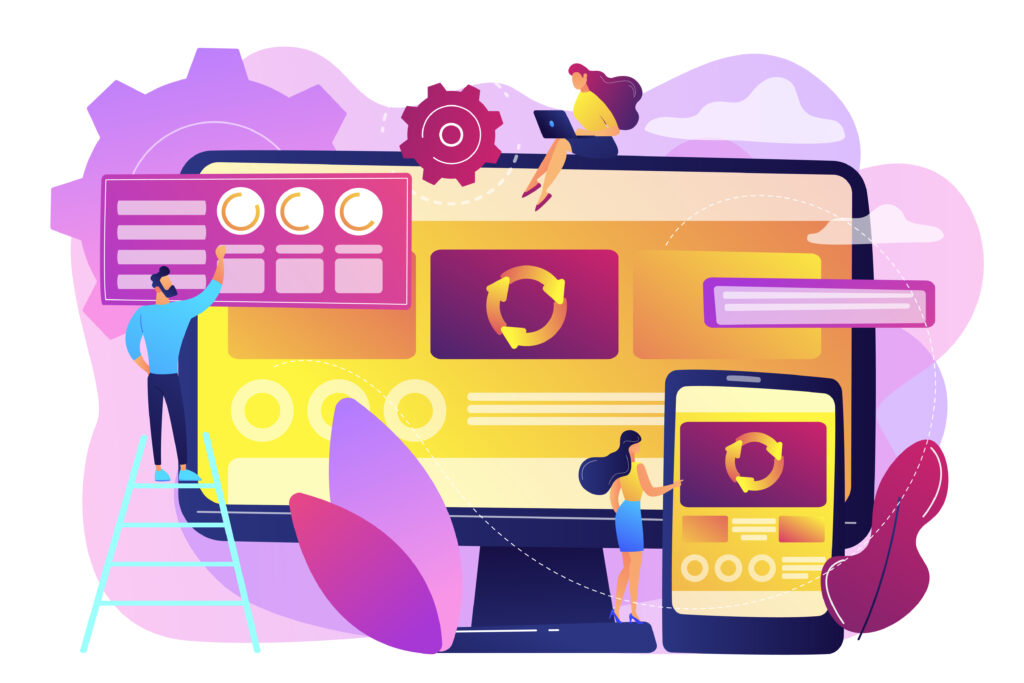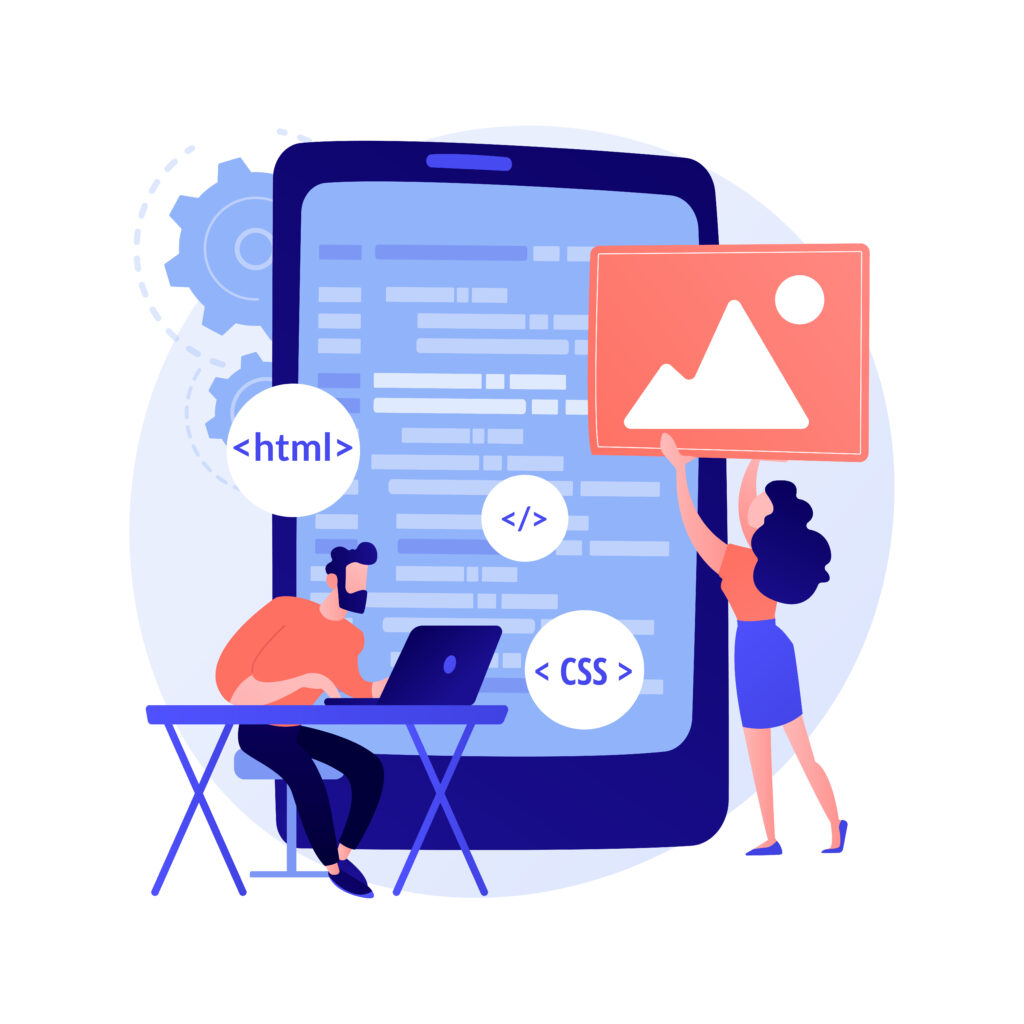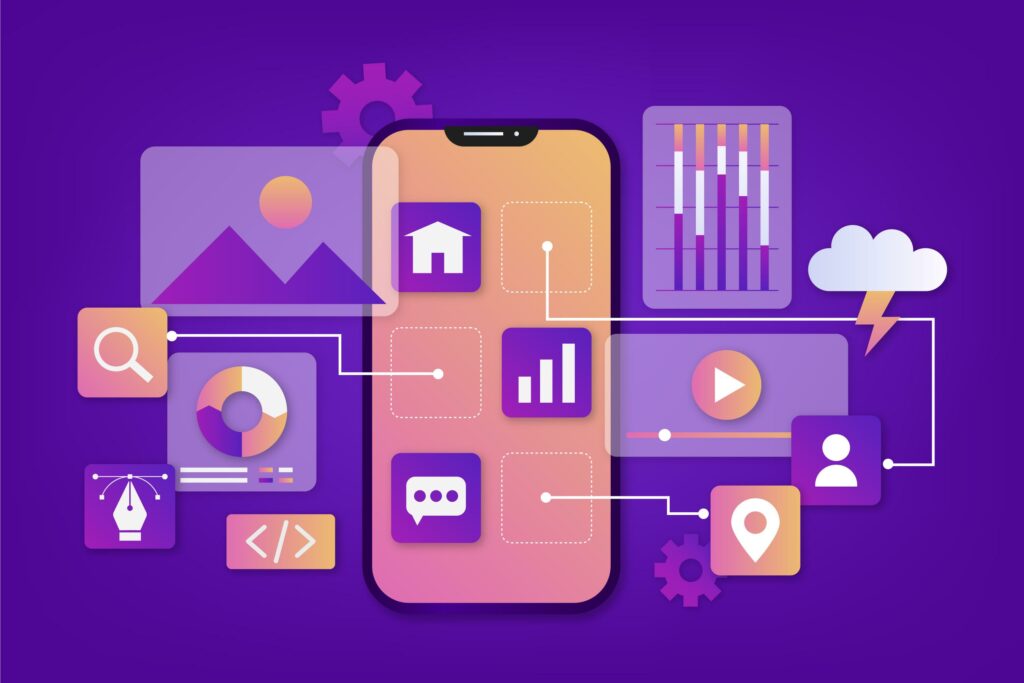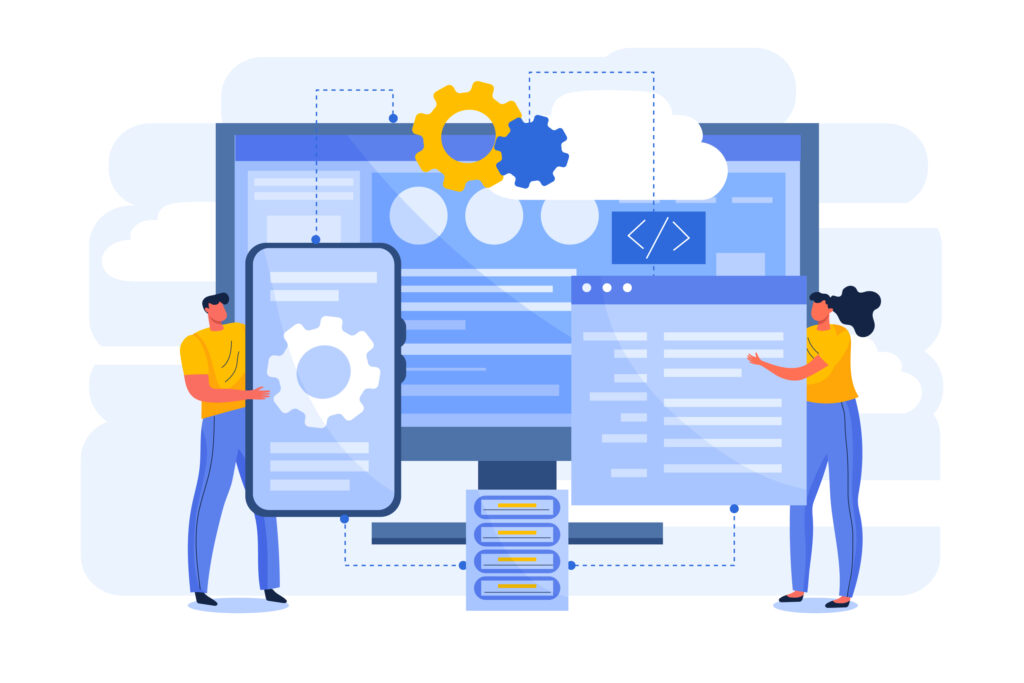Understanding Mobile Development Approaches: Advantages and Challenges
Mobile development approaches inlcudes the various techniques employed to create mobile applications. Each method presents unique advantages and challenges that depend on factors such as project specifications, budget constraints, target demographics, performance requirements, and development timelines.
1: Native App Development
Native mobile development focuses on building applications tailored for a specific platform, like iOS or Android, utilizing the native programming languages and tools associated with that platform.
Key Features:

Platform-Specific Languages:
- iOS applications are generally developed with Swift or Objective-C.
- Android applications are created using Kotlin or Java.
Development Tools:
- iOS applications are developed with Xcode (Apple’s integrated development environment).
- Android applications utilize Android Studio (Google’s integrated development environment).
Advantages:
- High Performance: Native applications benefit from direct access to device hardware, such as the camera, GPS, and sensors, which ensures optimal performance.
- Full Access to Platform Features: Developers can utilize the complete range of features and APIs offered by the operating system. This includes advanced graphics, security measures, and third-party integrations.
- Best User Experience: By adhering to platform-specific design guidelines, native apps provide a smooth and intuitive user experience that aligns with the operating system.
- App Store Approval: Native apps generally experience a more streamlined approval process for both the Apple App Store and Google Play Store due to their compliance with platform-specific guidelines.
Challenges:
- Higher Development Costs: The necessity of maintaining separate codebases for iOS and Android results in increased overall costs for development and maintenance.
- Longer Development Time: The requirement to write distinct codebases for each platform leads to extended periods spent on coding, testing, and debugging.
- Lack of Cross-Platform Code Reusability: Native development does not support code sharing between platforms. This makes it more resource-intensive for businesses aiming to target both iOS and Android users.
2: Cross-Platform App Development
This is one of the most common Mobile Development Approaches. Cross-platform development means the creation of a single codebase that operates on multiple platforms, including iOS, Android, and occasionally others like Windows or the web. This is accomplished through frameworks that convert code into platform-specific languages.

Key Frameworks
- React Native: Developed by Facebook, this framework utilizes JavaScript, enabling developers to create applications for both iOS and Android from a unified codebase.
- Flutter: This UI toolkit from Google employs the Dart programming language and delivers native performance along with customizable widgets for both platforms.
- Xamarin: A Microsoft framework that uses C#, allowing for code sharing across iOS, Android, and even Windows applications.
Advantages:
- Code Reusability: A significant portion of the code can be reused across various platforms. This will result in quicker development and lower costs.
- Faster Time to Market: Cross-platform development facilitates simultaneous app launches for both iOS and Android, expediting time to market.
- Easier Maintenance: With a single codebase for both platforms, implementing bug fixes and updates becomes simpler and more efficient.
Challenges:
- Performance Limitations: Although modern frameworks like Flutter and React Native have made strides in performance, native apps generally outperform them, particularly in resource-intensive scenarios (e.g., games, 3D applications).
- Limited Access to Native APIs: While cross-platform frameworks offer access to most common APIs, some advanced native features or platform-specific functionalities may necessitate custom development or “bridging” code.
- UI/UX Inconsistencies: Despite providing native-like UI components, some frameworks may encounter difficulties in fully replicating platform-specific design standards, leading to minor discrepancies in appearance and usability.
3: Hybrid App Development

Hybrid apps are essentially web applications encapsulated within a native shell. They are constructed using standard web technologies such as HTML5, CSS, and JavaScript, and are then wrapped in a native container that enables distribution through app stores.
Key Frameworks:
- Ionic: Built on Apache Cordova and Angular, this framework offers tools for creating hybrid apps that provide a native-like experience.
- Cordova: A widely utilized framework for enveloping web apps in a native shell, allowing them to be distributed via app stores.
Advantages:
- Cost-Effective Development: As hybrid apps are fundamentally web apps, developers familiar with web technologies can create mobile apps without needing to learn new programming languages.
- Faster Development: Utilizing a single codebase for both mobile platforms and the web accelerates development and reduces overall project expenses.
- Easy Maintenance: Similar to cross-platform development, hybrid apps are easier to maintain due to the shared codebase.
Challenges:
- Performance Issues: Since hybrid apps operate within a web view (browser), they may not perform as effectively as native apps, particularly in resource-intensive applications or those requiring access to device features like cameras or GPS.
- Limited User Experience: Hybrid apps may struggle to fully replicate the native feel, potentially affecting overall user satisfaction. Animations and transitions might not be as smooth compared to native applications.
- Access to Native APIs: Like cross-platform apps, hybrid apps often encounter limitations in accessing advanced device features, although this can sometimes be addressed with plugins or custom development.
4: Progressive Web Apps (PWAs)

Progressive Web Apps (PWAs) are web applications designed to function similarly to native mobile apps in terms of speed, responsiveness, and user experience, but they operate within a browser without requiring installation from an app store.
Key Features:
- Web-Based: PWAs are built using standard web technologies such as HTML5, CSS, and JavaScript.
- Installable: Users can add a PWA to their home screen directly from the browser, circumventing the app store.
- Offline Functionality: PWAs can operate offline or in low connectivity situations by utilizing service workers.
Advantages:
- No App Store Approval: Since PWAs are distributed via the web, they avoid the app store approval process. This will allow quicker updates and reducing distribution friction.
- Low Development Costs: A single web-based codebase caters to both desktop and mobile users, significantly lowering development time and expenses.
- Cross-Platform Compatibility: PWAs function across all devices with a web browser, including iOS, Android, Windows, and macOS.
Challenges:
- Limited Native Functionality: Although PWAs are advancing, they still lack access to certain native device features such as advanced hardware integrations (e.g., Bluetooth, NFC) or deep system-level APIs like push notifications on iOS.
- No App Store Presence: PWAs are not typically distributed through app stores (though some platforms are beginning to offer PWA support). This may limit visibility and marketing opportunities compared to traditional native applications.
- Browser Dependency: As PWAs rely on browser compatibility, they might not deliver a consistent experience across all devices and platforms.
5: No-Code/Low-Code Mobile Development

This is one of the most modern Mobile Development Approaches. No-code/low-code development platforms enable businesses to create mobile applications with minimal coding effort, utilizing drag-and-drop interfaces and pre-built modules.
Key Platforms:
- OutSystems: A low-code platform focused on mobile and web development, particularly for enterprise applications.
- Appy Pie: A no-code platform that allows users to create simple mobile applications without any coding skills.
Advantages:
- Rapid Development: These platforms significantly accelerate development time, allowing users to build basic applications within days or even hours.
- No Need for Technical Expertise: Designed for non-developers, these platforms are ideal for businesses that lack in-house development capabilities.
- Cost-Effective: With reduced technical requirements and faster development processes, no-code/low-code platforms can lower both initial development and ongoing maintenance costs.
Challenges:
- Limited Customization: These platforms may lack the flexibility needed for more complex or custom features. This will them less suitable for large-scale, feature-rich applications.
- Scalability Concerns: Applications developed on no-code/low-code platforms may encounter limitations regarding performance, scalability, and access to advanced APIs or native features as the user base expands.
- Vendor Lock-In: Many of these platforms operate within proprietary environments. This might complicate the migration of applications to other platforms or frameworks if necessary.
[Want to learn more about Mobile Development Approaches? Click here to reach us.]
Conclusion
Selecting the right approach is crucial for application success. Each method—native, cross-platform, hybrid, progressive web apps, or no-code/low-code—has unique advantages and challenges tailored to different project needs and budgets. Native development offers superior performance but is costlier and time-consuming.
Cross-platform and hybrid solutions are cost-effective with quicker development but may lack in performance. Progressive web apps provide accessibility, while no-code/low-code platforms enable rapid idea execution by non-developers.
Bobcares, with over 20 years of experience, offers comprehensive mobile app development support, specializing in React Native. Their services include consulting, code audits, and ongoing maintenance, helping businesses navigate mobile development effectively.




0 Comments